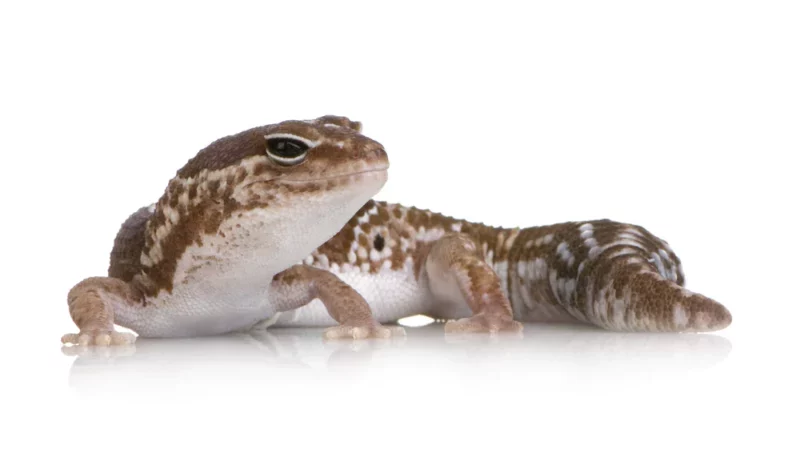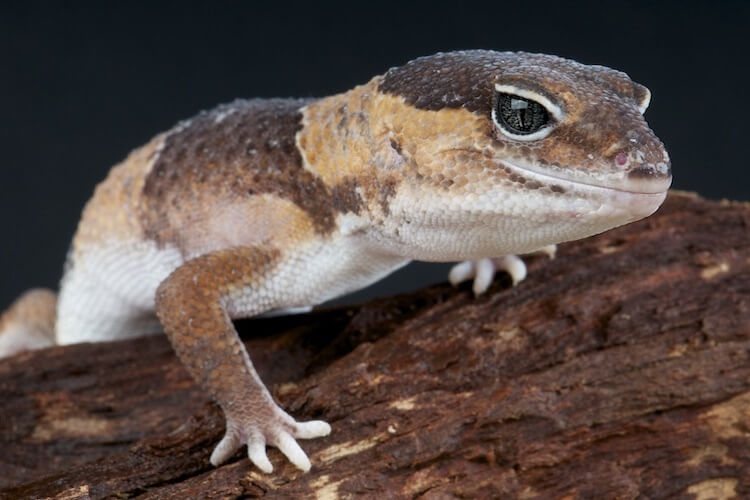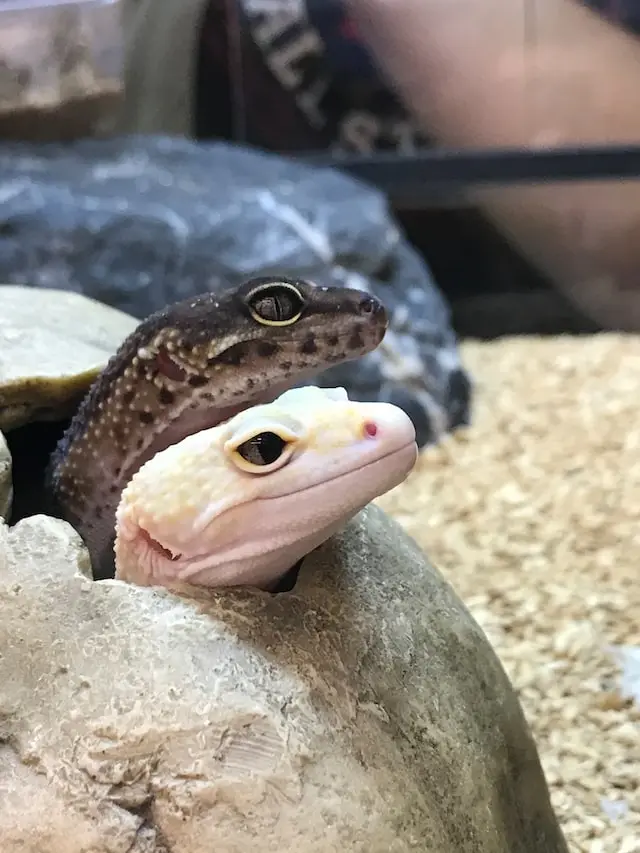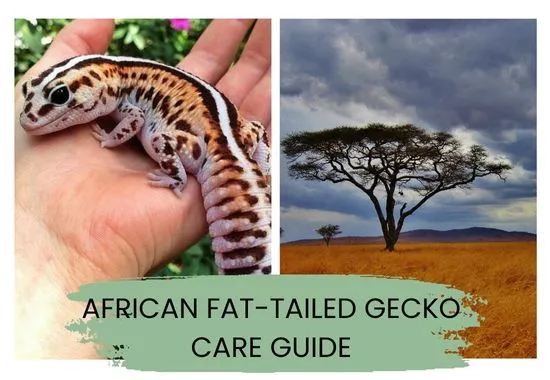Are you thinking of getting a reptile pet but are unsure of where to start? Look no further than the African fat-tailed gecko! These friendly and docile creatures make for great first-time reptile pets. Let’s take a closer look at what makes the African fat-tailed gecko such an ideal pet.
African fat-tailed geckos are a popular choice for pet owners looking for a docile and low-maintenance reptile. These geckos are native to Africa and get their name from their thick, fatty tails.

It is a great pet for first-time lizard owners. While this species is not difficult to care for, there are some things you should know in order to properly take care of yours.
African Fat-Tailed Gecko vs Leopard Gecko
African fat-tailed geckos closely resemble leopard geckos, although they tend to be a little smaller and come in fewer color variations. Their tails are so thick because they store extra fat and have a defense mechanism called ‘caudal autotomy’. This means that if their tail is grabbed by a predator, they can detach it and escape. Don’t worry, their tail will grow back!
Appearance
These geckos typically grow to be around 7-8 inches long, with females being slightly smaller than males. African fat-tailed geckos have a brown and tan/beige coloration with stripes, and there may be a thin white stripe along the length of their back. The underbelly of these geckos is typically pale pink or off-white in color.
Are African fat-tailed geckos good pets?
Yes, african fat-tailed geckos are relatively easy to care for, and they make excellent pets for both beginners and experienced reptile keepers alike. They tolerate being handled and can even learn to recognize their owner. Keep in mind that african fat-tailed geckos are nocturnal creatures, so they are most active at night. This means hat you should avoid handling then during the day.

Keeping African Fat-Tailed Gecko as a pet
If you’re considering keeping an African Fat Tail as a pet, then it’s important for you to understand how to set up their habitat. With proper care, African fat-tailed geckos make great pets and can live for up to 20 years in captivity. Here are some tips and guidelines for creating the best possible habitat for your new fat-tail friend:

Here is your Gecko essentials shopping list (with links):
Tank Size and Habitat
First and foremost, you’ll need to choose the type of enclosure you’ll be using. Most pet stores sell plastic terrariums specifically designed for lizards, but you can also use an aquarium or other type of glass enclosure if you prefer. Wooden enclosures are also suitable for this type of lizard. Whatever type of enclosure you choose, make sure to pick one that is at least 18″ long x 12″ wide x 12″ tall.
Substrate
Once you have your enclosure, the next step is to create a substrate for your fat-tail to live on. Many people simply use newspaper or paper towel in their lizards’ enclosures, but if you’d prefer something more natural-looking, there are also commercially available substrates that work well.
A good choice can be sand or slate.
Furnishing and hiding spots
The third step to creating a successful habitat is making sure you have the right size and number of hiding spaces, as well as climbing surfaces, in your enclosure. Fat-tail geckos are not tree-dwelling lizards, so they don’t tend to climb, but a few elevated hiding spots will enrich your gecko’s environment. You can use commercially sold caves, branches , and other hiding spaces, or you can create your own out of rocks, driftwood, cork bark, etc.
Temperature and Humidity Requirements
Now that you have the basics of housing covered, it’s time to think about heating and lighting. African fat-tail geckos need a reptile light bulb in their enclosure for heat. A UVB light can be beneficial, but it is not essential. Ideally, the temperature in your fat-tail’s enclosure should be between 80 and 90 degrees Fahrenheit during the day and about 10 degrees cooler at night.
Finally, you’ll need to maintain proper humidity levels for your gecko. Fat-tails are native to Africa where they live in fairly arid habitats with low humidity, so you don’t need to worry about high humidity levels. However, a substrate that can hold some moisture will help keep your gecko’s skin healthy and hydrated.
African Fat-Tailed Gecko Diet
When it comes to diet, African fat-tailed geckos are insectivores. In the wild, their diet consists mainly of crickets, Locusts, beetles, and mealworms. In captivity, you can provide them with a diet of live insects or commercially prepared foods designed specifically for reptile pets.
While you can buy commercial insect food, it’s also easy to dust insects with calcium powder before feeding them to your gecko. By dusting their food, you can be sure that your pet gecko is getting all the nutrients they need to stay healthy and happy and prevents them from suffering from metabolic bone disease.
Can African fat-tailed gecko lose their tails?
Many people believe that lizards can regrow their tails if they lose them. And while it’s true that some lizards, like the African fat-tailed gecko, can regrow their tails, it’s important to note that the new tail will not be identical to the original. In fact, the new tail is often shorter and less tapered than the original, and it may be a different color. Nevertheless, the ability to regrow a lost tail is an amazing adaptation that helps these lizards to survive in the wild.
Are African fat-tailed geckos venomous?
Although they are not venomous, African fat-tailed geckos can deliver a nasty bite if they feel threatened. As a result, it is important to handle them carefully and refrain from disturbing them while they are sleeping or hiding.
Do fat tailed geckos make noise?
While fat-tailed geckos are relatively quiet creatures, some males may make vocalizations, such as squeaks or clicks, during disputes over territory, when warning off other males, or when trying to attract females. In general, however, fat-tailed geckos are not known for being particularly noisy, and most owners report that these lizards are relatively quiet pets.
Conclusion:
Now that you know a little more about African fat-tailed geckos, we hope you’ll consider them as your next reptile pet! They are relatively easy to care for and make great companions for novice owners.
